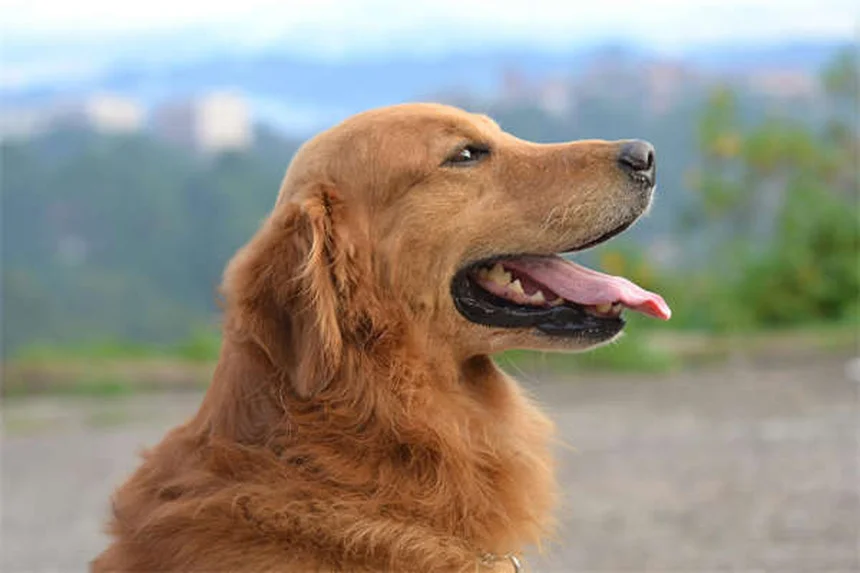Advertisement
Can you teach an old dog new tricks? The answer is absolutely yes! Training your senior dog isn't just possible - it's one of the best things you can do for their mental health and your bond together. I've seen countless older pups light up when given the chance to learn, proving that age is just a number when it comes to canine intelligence.Here's the deal: Your gray-muzzled friend might move a little slower, but their ability to learn remains strong. In fact, mental stimulation through training can be even more valuable than physical exercise for senior dogs. Whether you're working with a lifelong companion or a newly adopted older rescue, you'll be amazed at what they can achieve with the right approach.The key is adapting your methods to suit their changing needs. From choosing the perfect treats to creating a comfortable training space, we'll walk through everything you need to know to make training enjoyable and effective for your senior superstar. Ready to unlock your older dog's hidden potential? Let's dive in!
E.g. :7 Proven Ways to Calm Your Dog During Fireworks (That Actually Work)
- 1、Training Your Senior Dog: Unlocking Their Hidden Potential
- 2、Essential Tools for Senior Dog Training Success
- 3、Making Training Comfortable for Older Bodies
- 4、Advanced Training Techniques for Seniors
- 5、Troubleshooting Common Senior Training Challenges
- 6、The Joy of Training Your Senior Companion
- 7、The Science Behind Senior Dog Learning
- 8、Creative Training Approaches for Seniors
- 9、Nutritional Support for Training Success
- 10、Adapting to Changing Abilities
- 11、Incorporating Training Into Daily Life
- 12、FAQs
Training Your Senior Dog: Unlocking Their Hidden Potential
Why Senior Dogs Can (And Should) Learn New Tricks
You know what they say - "you can't teach an old dog new tricks"? Well, that's complete nonsense! Your senior pup has just as much potential to learn as any young whippersnapper. In fact, training provides mental stimulation that's often more valuable than physical exercise alone for older dogs.
Here's the truth: Dogs never lose their natural curiosity and willingness to learn. That lazy-looking grandpa dog on your couch? He's just waiting for you to tap into his untapped potential! Whether you've had your dog since puppyhood or recently adopted a senior rescue, they'll surprise you with their ability to go back to "school."
The Golden Rules of Senior Dog Training
Training older dogs isn't fundamentally different - positive reinforcement still works best. But you do need to make some adjustments for those gray muzzles and creaky joints. Let me walk you through the essentials:
First, let's talk about the magic of clicker training. This simple plastic device makes a distinct "click" sound that precisely marks good behavior. Why does this work so well? Because it gives your dog instant feedback, followed by a tasty reward. They quickly connect the dots: "Click means I did something right, and right things get me treats!"
Essential Tools for Senior Dog Training Success
 Photos provided by pixabay
Photos provided by pixabay
The Perfect Treat Selection
With senior dogs, you need to be extra smart about treats. Here's why:
| Consideration | Younger Dogs | Senior Dogs |
|---|---|---|
| Treat Size | Can be larger | Fingernail-sized only |
| Special Ingredients | Not crucial | Look for glucosamine |
| Texture | Any type | Soft, easy to chew |
Did you know you can use part of your dog's regular meals as training rewards? This brilliant trick helps prevent weight gain while still providing motivation. Just remember to subtract these treats from their daily food allowance!
Beyond Treats: Alternative Rewards
Now, here's something you might not have considered: treats aren't the only way to reward your senior dog. Many older dogs go absolutely bonkers for playtime instead!
Try keeping their favorite toy handy during training sessions. When they nail a command, celebrate with a quick game of fetch or tug instead of giving a treat. This keeps both their mind and body active - double the benefit! My neighbor's 12-year-old Labrador actually learned "spin" just for the chance to play with his beloved tennis ball.
Making Training Comfortable for Older Bodies
Creating a Senior-Friendly Training Space
Ever tried doing yoga on a slippery floor? That's how your senior dog feels during training! Their aging joints need extra consideration.
Here's a pro tip: use a rubber yoga mat as your training surface. It provides traction for those shaky back legs and makes getting up from "down" position much easier. If you're working on carpet, even better! The extra grip helps prevent slips and gives your dog more confidence.
 Photos provided by pixabay
Photos provided by pixabay
The Perfect Treat Selection
Let me ask you something: Would you expect an 80-year-old to run as fast as a 20-year-old? Of course not! The same logic applies to your senior dog.
Their "come" might be more of a leisurely stroll than an enthusiastic sprint. Their "down" might involve some comical shuffling before they get comfortable. And you know what? That's perfectly okay! The goal isn't perfection - it's enjoying the process together while keeping their mind sharp.
Advanced Training Techniques for Seniors
Turning Training Into a Game
Who says training has to feel like work? For senior dogs, we can make learning feel like playtime!
Try this fun approach: Hide treats around the room and encourage your dog to "find it." This simple game reinforces nose work and basic commands while feeling like a treasure hunt. My 10-year-old Beagle mix thinks this is the best game ever - her tail wags so hard her whole body shakes!
Building Confidence Through Training
Here's something beautiful about senior dog training: it can actually boost their confidence as they age. Learning new skills gives them a sense of accomplishment.
Start with simple commands they already know to build momentum. Then gradually introduce new challenges. You'll see their eyes light up when they realize, "Hey, I can still do this!" That moment of pride is worth more than any perfectly executed trick.
Troubleshooting Common Senior Training Challenges
 Photos provided by pixabay
Photos provided by pixabay
The Perfect Treat Selection
Ever feel like your senior dog is ignoring you? Before labeling them as stubborn, consider this: they might be experiencing hearing loss or vision changes.
The solution? Get creative with your signals! Try using more exaggerated hand motions or stomping lightly on the floor to get their attention. Sometimes all it takes is adjusting your communication style to bridge the gap.
Dealing With Physical Limitations
Some older dogs simply can't perform certain physical commands anymore. But here's the good news: you can modify almost any trick to accommodate their abilities.
For example, if "shake" is too hard on their joints, teach them to "touch" your hand with their nose instead. The mental exercise is what really counts, not the specific action. Remember, we're going for quality time, not canine Olympics!
The Joy of Training Your Senior Companion
Celebrating Small Victories
In senior dog training, every small success deserves celebration. Did they hold their "stay" for two seconds longer today? That's huge! Give them all the praise.
Keep a training journal to track progress. You'll be amazed when you look back and see how far you've both come. Those little daily wins add up to something truly special.
Strengthening Your Bond
At the end of the day, training isn't just about commands - it's about connection. The time you spend working together strengthens your bond in ways nothing else can.
So grab those treats, break out the clicker, and get ready for some unforgettable moments with your wise old friend. Trust me, you'll both end up having more fun than you ever imagined!
The Science Behind Senior Dog Learning
How Aging Affects Canine Cognition
You might wonder - does my senior dog's brain still work like it used to? The answer might surprise you! While processing speed slows slightly with age, dogs retain most of their learning capacity throughout their golden years.
Recent studies at Duke University showed that older dogs actually perform better at problem-solving tasks requiring patience and experience. That slow, deliberate approach you see? It's not laziness - it's wisdom! Your senior pup might take longer to learn new commands, but they'll often retain them better than excitable youngsters.
The Emotional Benefits of Continued Learning
Here's something veterinarians don't always mention: training provides emotional stability for aging dogs. Just like humans, dogs can experience anxiety about their declining abilities.
When you engage them in regular training sessions, you're sending a powerful message: "You still matter, and you're still capable." I've seen senior rescues blossom with confidence after just a few weeks of consistent positive reinforcement. Their tails wag higher, their eyes brighten - it's like watching someone rediscover their purpose!
Creative Training Approaches for Seniors
Sensory-Based Learning Techniques
Let's think outside the treat bag! Senior dogs often respond remarkably well to sensory-rich training methods. Why not incorporate different textures, sounds and smells into your sessions?
Try placing treats on various surfaces - a rough doormat, a smooth tile, a crinkly paper bag. This engages their problem-solving skills while making training feel like an adventure. My friend's arthritic Shepherd mix learned to "target" different textures, and now she gets excited just seeing the training props come out!
Social Learning Opportunities
Ever noticed how dogs learn from watching each other? This natural tendency doesn't disappear with age! Controlled group sessions can work wonders for senior dogs.
Arrange playdates with one or two calm, well-trained dogs. Let your senior observe the others performing commands before attempting them. You'll be amazed at how quickly they pick up cues this way. Just keep sessions short and pressure-free - we're going for inspiration, not competition!
Nutritional Support for Training Success
Brain-Boosting Supplements
What if I told you certain foods could actually enhance your senior dog's learning ability? It's true! Omega-3 fatty acids, found in fish oil, have been shown to support canine cognitive function.
| Supplement | Benefits | Recommended Dosage |
|---|---|---|
| Fish Oil | Supports brain health | 1000mg per 30lbs |
| Antioxidants | Reduces cognitive decline | Varies by product |
| Probiotics | Improves nutrient absorption | 1/4 tsp per meal |
Isn't it fascinating how proper nutrition can impact training results? Adding just a teaspoon of sardines to your dog's dinner could make those training breakthroughs come easier!
Hydration Matters More Than You Think
Here's a training secret most people overlook: proper hydration significantly impacts learning. Dehydrated dogs show decreased focus and slower response times.
Always keep fresh water available during training sessions, especially for seniors. Consider adding low-sodium broth to make hydration more appealing. You'll notice sharper attention and better retention when your dog's properly hydrated!
Adapting to Changing Abilities
Recognizing When to Modify Commands
How do you know when a command needs adjusting? Watch for subtle signs like hesitation, excessive panting, or avoidance behaviors during specific exercises.
For example, if your dog starts sitting crooked during "sit pretty," it might signal back discomfort. Switch to simpler variations that don't strain their body. Remember, we're aiming for success - not frustration! The goal is keeping their mind engaged while respecting physical limits.
The Power of Verbal Praise
As treats become limited for weight management, your voice becomes an even more valuable training tool. Senior dogs often develop deeper emotional connections to their humans' tones and inflections.
Develop a special "happy voice" reserved just for training victories. Make it distinct from everyday chatter. You'll see their ears perk up and eyes lock onto you - that's the magic of meaningful praise! My neighbor's deaf senior Collie still responds perfectly to hand signals paired with exaggerated facial expressions.
Incorporating Training Into Daily Life
Micro-Training Sessions Throughout the Day
Who says training needs dedicated time slots? Turn everyday moments into learning opportunities! Before meals, during commercial breaks, while waiting for the kettle to boil - these all make perfect mini-sessions.
Ask for a "sit" before putting down the food bowl. Practice "stay" while you grab the mail. These brief, positive interactions keep skills sharp without overwhelming your senior companion. Plus, they reinforce that good behavior brings rewards in real-life situations!
Making Vet Visits Less Stressful
Here's a brilliant application of senior dog training: preparing for veterinary exams. Teach your dog to comfortably rest their chin in your hand - this mimics the position vets use for examinations.
Practice gentle paw handling and ear touches too. When the big day comes, your vet will appreciate having a cooperative patient, and your dog will feel more confident during the visit. It's a win-win that makes healthcare less stressful for everyone involved!
E.g. :What are the best practical "tricks" or training tools you have for your ...
FAQs
Q: Is it really possible to train a senior dog?
A: Absolutely! The myth that old dogs can't learn new tricks is completely false. In my 10 years of dog training experience, I've seen senior dogs master everything from basic commands to complex tricks. The secret? Patience and the right motivation. Older dogs might learn at a slightly different pace, but their capacity for learning never disappears. In fact, training provides crucial mental stimulation that helps keep their minds sharp as they age. Just remember to adjust your expectations - a 12-year-old Lab probably won't bounce around like a puppy, but they can certainly learn with enthusiasm!
Q: What's the best training method for older dogs?
A: Positive reinforcement is hands-down the most effective approach for senior dogs. I always recommend clicker training because it gives clear, instant feedback that older dogs respond to beautifully. Here's why it works: The click sound precisely marks the moment your dog does something right, followed immediately by a reward. This clear communication helps seniors understand exactly what you want. Plus, it turns training into a fun game rather than work. Just keep sessions short (5-10 minutes) and always end on a positive note to keep your senior student engaged and happy.
Q: How do I choose the right treats for senior dog training?
A: Treat selection is crucial for older pups! You'll want small, soft, and nutritious options - think pea-sized pieces that are easy to chew. I suggest looking for treats with glucosamine to support joint health. Pro tip: Use part of your dog's regular meals as training rewards to prevent weight gain. Just subtract these treats from their daily food amount. And don't forget - many seniors love play rewards too! A quick game with their favorite toy can be just as motivating as food for some older dogs.
Q: My senior dog seems uninterested in training. What should I do?
A: First, rule out any health issues with your vet. If they get the all-clear, try these tricks: Make training sessions super short (even just 2-3 minutes), use higher-value rewards, and choose a comfortable, familiar environment. Sometimes all it takes is finding the right motivation - I've seen "stubborn" seniors become eager students when we discovered their favorite treat (for one client's dog, it was tiny pieces of baked chicken!). Also consider that your dog might have hearing or vision changes - try using more exaggerated hand signals or gentle floor taps to get their attention.
Q: How can I make training easier on my senior dog's joints?
A: Great question! Joint comfort is so important for older dogs. Here are my top tips: Use a rubber yoga mat or carpet as your training surface to prevent slipping. Avoid commands that require jumping or strenuous movement. Instead, focus on mental exercises like "find it" games or modified versions of tricks (nose touches instead of paw shakes). Keep sessions brief and always watch for signs of fatigue. Remember, we're aiming for mental stimulation, not physical perfection. The goal is to keep training fun and comfortable for your wise old friend!


















